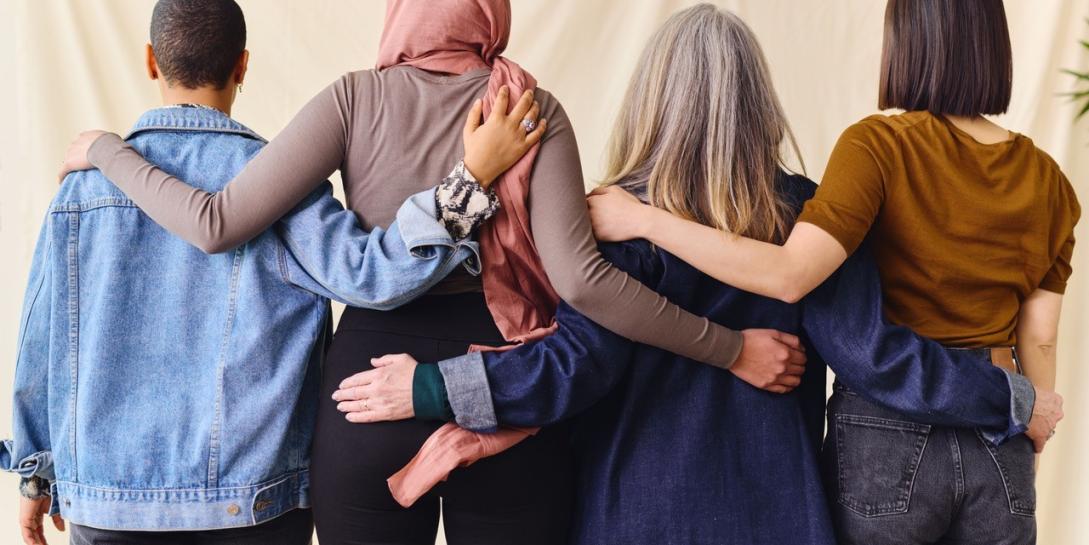International Women's Day: The EU closer to the ratification of the Council of Europe Istanbul Convention to deliver on our joint priority for Gender Equality

On the International Women’s Day, the EU reaffirms that gender equality is a precondition for building resilient, cohesive and thriving societies. In this respect, participation to public and political life, access to goods and services, education and training opportunities, as well as employment conditions and representation in the labour market should all reflect the inclusion of women and men on an equal footing and a redress for historic gender bias and discrimination.
Major recent challenges or disruptions such as the COVID-19 pandemic or the war in Ukraine have had a chilling effect on women’s rights. At the same time, growing negative trends at state level, such as waning adherence to democratic principles and fundamental freedoms, have also meant a weakening of protections against gender-based discrimination.
The recently adopted EU Priorities for Cooperation with the Council of Europe 2023-2024 recognise gender equality and combatting violence against women as key objectives in our joint work with the Council of Europe. This strong cooperation will continue at different levels through a wide range of instruments. Our joint programmes within the EU and in its Enlargement and Neighbourhood region provide concrete assistance to domestic authorities and civil society actors. They contribute to improving national response systems to gender-based violence, raising societal awareness or enhancing access to justice for Roma women, among other things.
The most promising development in our cooperation on gender equality is the recent progress on the ratification of the Istanbul Convention, the Council of Europe cornerstone treaty on preventing and combating violence against women and domestic violence, which the EU signed in 2017.
Less than a month ago, the European Parliament called on the EU to proceed with the ratification of the Convention in line with an opinion of the EU Court of Justice from October 2021. On 21 February, the EU Council via qualified majority voting moved forward with the file by formally requesting the consent of the European Parliament.
The Convention on Preventing and Combating Violence against Women and Domestic Violence, known as the Istanbul Convention, is the first and most extensive international binding instrument in the field. Recognised by the EU, the UN and other government and international actors as the “gold standard” in the fight against gender-based violence, it obliges state parties to address this structural issue comprehensively through its four pillars of prevention, protection, prosecution and coordinated policies.
By ratifying the Istanbul Convention, the European Union will become a member of the world’s most advanced instrument in combatting violence against women. It will mark an important step forward in the EU’s commitment to end gender-based violence, as well as in its cooperation with the Council of Europe. We remain committed to an ever-stronger partnership to deliver on our goal for #OneEurope, strong in our recognition of women’s rights and true to the principles of equality and fairness.
A values-driven partnership built over the years
Amidst increasing global challenges to women’s rights, Europe has witnessed in the last decades a growing commitment at the multilateral level towards the promotion of gender equality as a fundamental priority. In that respect, both the EU and the Council of Europe have placed women’s participation and empowerment at the heart of their efforts to promote universal human rights.
The Council of Europe, the leading human rights organisation in Europe, has established some of the most far-reaching globally recognised standards on gender equality, starting with its landmark Istanbul Convention on Preventing and Combating Violence against Women and Domestic Violence.
Other gender equality topics substantially covered by the Council of Europe’s standard-setting, intergovernmental work and assistance projects, and coherently dealt with in its Gender Equality Strategy 2018-2023, are the participation of women in public and political processes, access to justice, combatting sexism or protecting female migrants and refugees. The work of the two statutory bodies of the Council of Europe, the Committee of Ministers and the Parliamentary Assembly, has also been instrumental in this regard, through the wide corpus of recommendations and resolutions on a variety of topics related to women’s rights.
On the EU’s side, the Gender Equality Strategy 2020-2025 lays down the EU’s vision and ambition towards a Union of Equality, notably by combating violence against women and gender stereotypes, addressing pay and benefits gaps, and enhancing women’s participation across the board, including in leading and decision-making roles. The recent Directive on gender balance in corporate boards adopted in November 2022 is a meaningful step forward in that regard.
Moreover, in March 2022 the Commission put forward a proposal for a Directive to combat violence against women and domestic violence, which effectively recognises the Istanbul Convention of the Council of Europe as “the most extensive international framework to comprehensively address violence against women and domestic violence” and whose stated aim is to “achieve the objectives of the Convention within the EU’s remit”. In line with EU’s internal approach towards a Union of Equality, the Gender Action Plan 2021-2025 (GAP III) makes the mainstreaming of gender equality also a priority for the EU’s external relations. Just as the Gender Equality Strategy, the GAP III recognises the Istanbul Convention as “the benchmark for international standards” on this topic.





